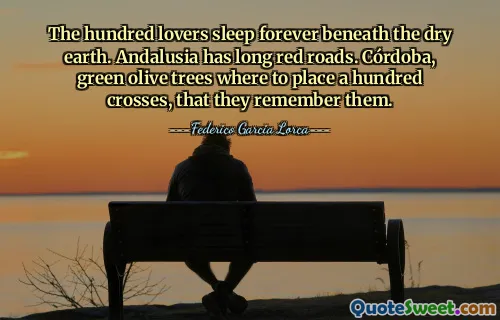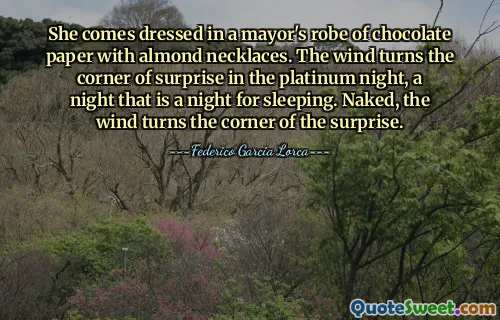Federico García Lorca was a prominent Spanish poet, playwright, and director, born in 1898 in Fuente Vaqueros, Granada. His works are celebrated for their deep emotional resonance and exploration of themes such as love, death, and the complexities of Spanish identity. He was a key member of the Generation of '27, a group of avant-garde writers and artists who were instrumental in the cultural revival of Spain during the early 20th century. Through his innovative use of language and vivid imagery, Lorca's work reflects a profound connection to his Andalusian roots and the folklore of Southern Spain.
Lorca's literary contributions include seminal works like "Romancero Gitano" and the plays "Bodas de Sangre" and "La Casa de Bernarda Alba." These pieces often delve into the struggles of marginalized individuals, particularly focusing on women and the clash between tradition and modernity. His ability to intertwine poetic forms with theatrical narratives has left a lasting impact on both literature and drama, making him one of Spain’s most significant literary figures.
More »
Today Birthdays
1729 -
Edmund Burke
1949 -
Haruki Murakami
1954 -
Howard Stern
1876 -
Jack London
1993 -
Zayn Malik
1951 -
Kirstie Alley
1863 -
Swami Vivekananda
1923 -
Alice Miller
1987 -
Naya Rivera
1825 -
Brooke Foss Westcott
1944 -
Joe Frazier
1951 -
Rush Limbaugh
1964 -
Jeff Bezos
1978 -
Jeremy Camp
1628 -
Charles Perrault
1856 -
John Singer Sargent
1970 -
Kaja Foglio
1953 -
Rick Santelli
1986 -
Gemma Arterton
1968 -
Raf Simons
1958 -
Christiane Amanpour
1966 -
Olivier Martinez
1996 -
Ella Henderson
1917 -
Maharishi Mahesh Yogi
1949 -
Ottmar Hitzfeld
1928 -
Ruth Brown
1968 -
Heather Mills
1946 -
George Duke
1968 -
Rachael Harris
1923 -
Ira Hayes


